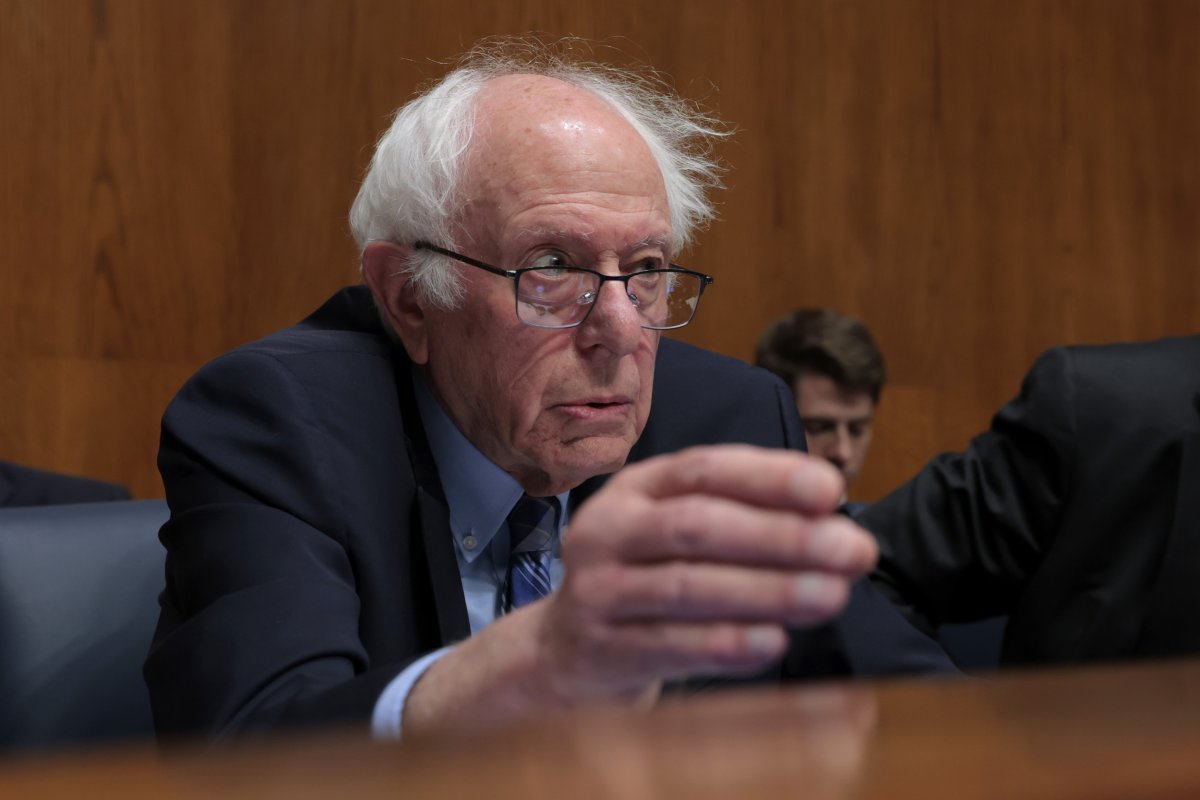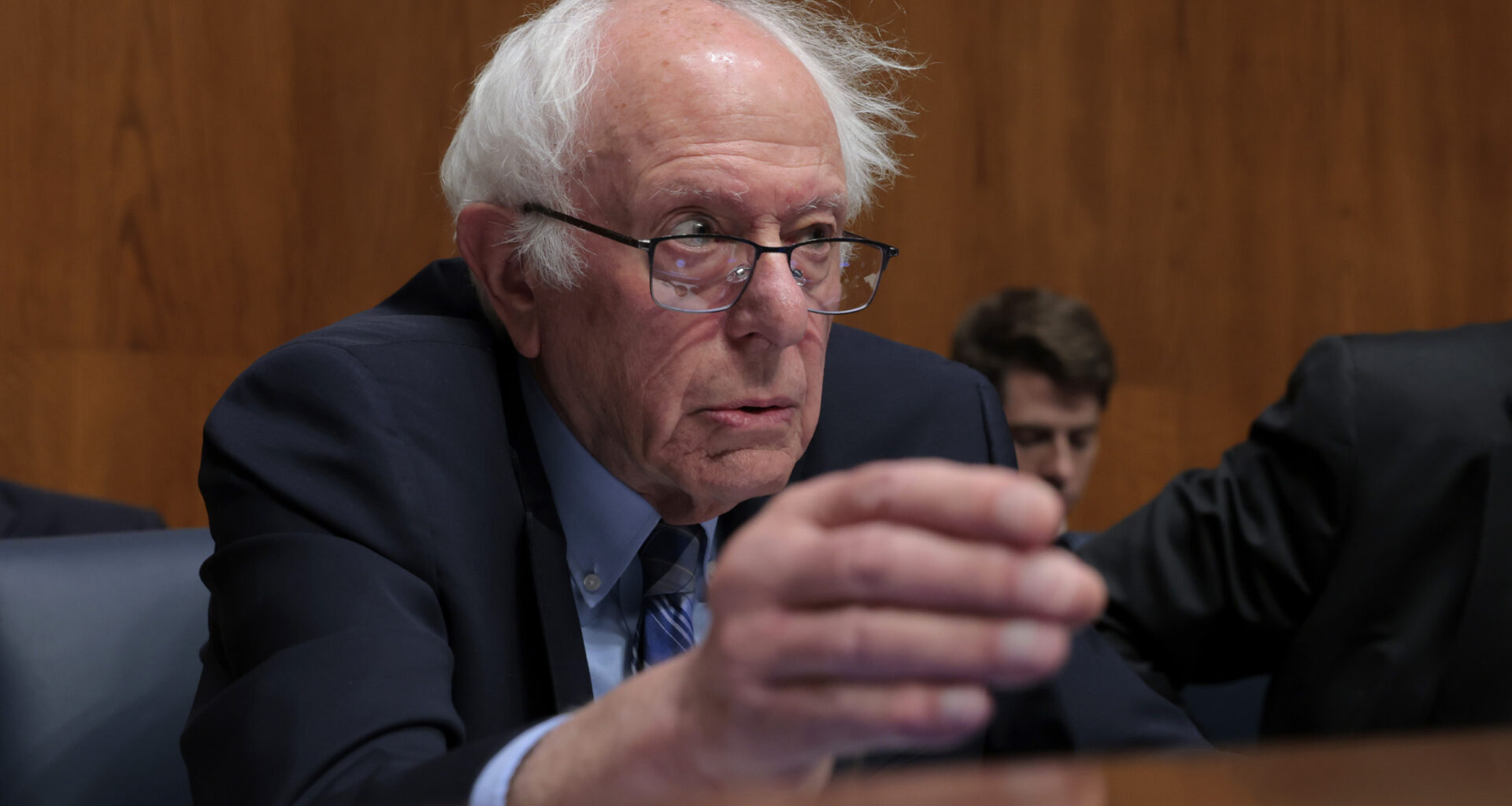Senator Bernie Sanders is leading a new bill to address a key priority of Robert F. Kennedy Jr., who serves as President Donald Trump‘s Health and Human Services Secretary.
Why It Matters
Sanders, a Vermont independent, alongside Senator Angus King, a Maine independent, introduced the “End Prescription Drug Ads Now Act,” which, if passed, would ban prescription drug advertising on TV, radio, print and digital platforms as well as social media.
Critics say these ads contribute to the high price of healthcare while doing little to improve care in the United States, though proponents say the advertisements can improve patients’ knowledge of healthcare. Most wealthy countries, with the U.S. and New Zealand being two notable exceptions, ban pharmaceutical drug advertisements.
The bill also represents an issue where Sanders, viewed as perhaps the most progressive senator, has found common ground with Kennedy inside the Trump administration, though the secretary has not commented on this bill specifically.
What to Know
Sanders and King announced the legislation on Thursday, highlighting that the pharmaceutical industry spent more than $5 billion on TV ads in 2024 and that many of these drugs cost more in the U.S. than in other countries that do not allow drug companies to run ads on TV.
“The American people are sick and tired of greedy pharmaceutical companies spending billions of dollars on absurd TV commercials pushing their outrageously expensive prescription drugs,” Sanders said, describing the fact that the U.S. stands mostly alone in allowing pharmaceutical ads as an “international embarrassment.”

vSenator Bernie Sanders, a Vermont independent, questions U.S. Secretary of Health and Human Services Robert F. Kennedy Jr. during a committee hearing on May 14, 2025 in Washington, D.C.
vSenator Bernie Sanders, a Vermont independent, questions U.S. Secretary of Health and Human Services Robert F. Kennedy Jr. during a committee hearing on May 14, 2025 in Washington, D.C.
Anna Moneymaker/Getty Images
Sanders’ director of communications Anna Bahr confirmed to Newsweek his office has reached out to Republicans to join the bill. Bahr pointed to lobbying from the pharmaceutical and health insurance industries as to why the U.S. has not joined other countries in bannign the ads.
“Over the past 25 years, the drug companies have spent $8.5 billion on lobbying. Today, they have some 1,800 well-paid lobbyists in Washington, D.C. – including former leaders of the Republican and Democratic parties,” she said in a statement to Newsweek. “Unbelievably, that is more than three lobbyists for every member of Congress. During that same period, they have provided over $700 million in campaign contributions. And they are equal opportunity contributors. They contribute heavily to both Republican and Democratic candidates.”
Secretary Kennedy—as well as Elon Musk, who previously served in Trump’s administration—have expressed support for ending pharmaceutical advertising.
“Let’s get President Trump back in the White House and me to DC so we can ban pharmaceutical advertising,” Kennedy wrote in a post to X (formerly Twitter) on November 3, 2024. During his own presidential campaign, Kennedy said he would have issued an executive order ending the advertisements on his first day in office.
Newsweek reached out to DHS for comment via the department’s press contact form.
Caleb Alexander, professor of epidemiology at the Johns Hopkins University Bloomberg School of Public Health, told Newsweek that while a potential ban’s impact on drug prices remains uunclear, there would be benefits to ending these advertisements. Pharmaceutical advertisements can drive up “inappropriate demand” for prescription drugs in settings where they may not be needed, he said.
“In terms of the potential benefits of banning [direct-to-consumer advertisements], the most immediate and likely is that it would temper demand for products in settings where they may not be needed,” Alexander said.
The U.S. has “evolved to believe” the benefits of the ads, such as empowering patients to identify health concerns, outweigh the risks, though much of the research on the topic indicates that the benefits may not be worth the drawbacks, he said.
What People Are Saying
Alexander told Newsweek: “Direct to consumer advertising has been a lightning rod for controversy, and it remains a curious and unique feature of the U.S. marketplace. While a ban on direct advertising may be welcomed by many, it’s not going to fundamentally transform the marketplace for prescription drugs in the United States, simply because DTCA is highly concentrated among a small number of products. It may be a reasonable political and public health target, but I think that if you just look at the way the dollars flow, there’s vastly more money spent on marketing drugs to prescribers.”
Senator Angus King wrote in a statement: “The widespread use of direct-to-consumer advertising by pharmaceutical companies drives up costs and doesn’t necessarily make patients healthier. The End Prescription Drug Ads Now Act would prohibit direct-to-consumer advertising of pharmaceutical drugs to protect people. This bill is a great step to ensure that patients are getting the best information possible and from the right source: their providers and not biased advertisements.”
Elon Musk wrote to X in November 2024: “No advertising for pharma.”
What Happens Next
It’s unclear whether a majority of senators are also in support of the bill. So far, Democratic Senators Chris Murphy of Connecticut, Peter Welch of Vermont, Jeff Merkley of Oregon and Dick Durbin of Illinois have co-sponsored the bill, according to Sanders’ office.
